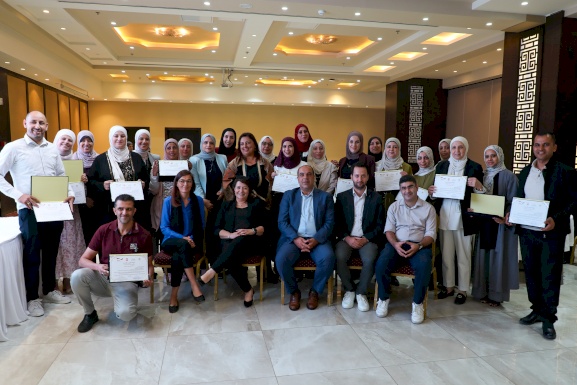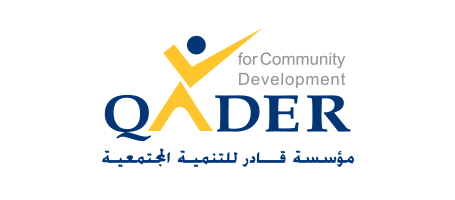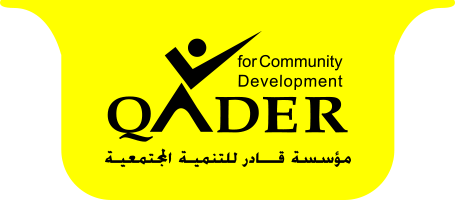The Ministry of Health and QADER conclude the national program to strengthen the capacities of professionals in diagnosing children’s intellectual abilities.

Ramallah – Yesterday, Monday, a memorandum of understanding was signed between the Ministry of Health, QADER for Community Development, and Caritas Germany, marking the launch of the third phase of the national program to strengthen the capacities of professionals in diagnosing children’s intellectual abilities.
The memorandum was signed by Minister of Health Dr. Majed Abu Ramadan, Ms. Lana Bandak, Director General of QADER for Community Development, and Ms. Roswita Brender, Project Officer for Palestine and Representative of Caritas Germany in Palestine.
The Minister of Health emphasized that this program reflects the Ministry’s firm commitment to the children of Palestine, especially in light of the increasing health and psychological challenges in the West Bank and Gaza Strip. He pointed out that strengthening the quality of diagnosis and assessment for children with intellectual disabilities is an investment in the future of Palestinian society as a whole.
He stressed that the launch of the third phase demonstrates the success of the partnership with QADER and Caritas Germany, as well as the generous support of the German Federal Ministry for Economic Cooperation and Development (BMZ). He further affirmed that this cooperation represents a model of joint health work that ensures the sustainability of results and the expansion of their benefits through the Ministry’s health centers across all governorates.
Ms. Lana Bandak, Director General of QADER, stated that developing nationally unified and accredited standards for the quality of diagnostic and assessment services for children’s intellectual abilities, alongside building the capacities of professionals, is an investment in the Palestinian people and in our collective future. She described it as a pivotal step to ensure that every child, everywhere, receives accurate and unified diagnostic services based on best practices and international standards.
For her part, Ms. Roswitha Brender, Project Officer for Palestine at Caritas Germany, highlighted the importance of the partnership between Caritas Germany, QADER, and the Ministry of Health in building the capacities of professionals. She reaffirmed Caritas Germany’s steadfast and ongoing commitment to supporting all its partners to achieve tangible and sustainable results and to ensure equitable access for children to quality diagnostic services.
This came during the closing meeting of the national program, which brought together local and international partners and program participants. The event was attended by representatives from the Ministries of Health, Social Development, and Education and Higher Education, along with civil society organizations, several international partners, and the program participants from different governmental and non-governmental institutions.
The meeting featured speeches underscoring the importance of developing unified national standards for the quality of diagnostic and assessment services for children with intellectual disabilities, and the value of the effective partnership that has brought together the Ministry of Health, QADER, and Caritas Germany since 2021.
The event also included a presentation of the program’s outcomes, the handover of diagnostic tools to the Ministry of Health and UNRWA, and the distribution of certificates to 42 participants who successfully completed the training. Attendees affirmed that investing in the capacities of professionals is a direct investment in the future of Palestinian children and in strengthening the quality of health services at the national level.
Dr. Afif Al-Attawneh, Director General of Public Health at the Ministry of Health, speaking on behalf of the Minister of Health, confirmed that this program represents a qualitative step toward enhancing the quality of diagnostic and assessment services for children with intellectual disabilities. This is achieved through the development of unified national standards, the training of professional staff, and the provision of advanced diagnostic tools in line with best international practices. He noted that the program comes at a highly critical time, given the severe psychological impacts and hardships faced by children in the West Bank and Gaza Strip.

